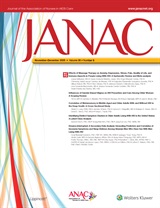Women's lives are marked by specific transitions: childhood, adolescence, emerging adulthood, adulthood, and later years. Somewhere between adolescence and adulthood, menstruation begins, which is traditionally seen as the entrance into "womanhood" and the start of reproductive aging (Forman et al., 2013; WHO, 2024). For many of us, the acquisition of HIV or learning about one's HIV status comes as another unexpected transition. It is often traumatic and, like menopause, can be physically and emotionally distressing (Cianelli et al., 2022; Durvasula, 2014). Menopause itself is yet another period of shifting perspective in a woman's life, from perimenopause to menopause and eventually postmenopause (WHO, 2024).
I was fully unprepared for perimenopause. For a decade, I had lived well with HIV, but as my body began to change, a new wave of emotionally and physically draining symptoms emerged. I spent years misattributing a confusing mix of ailments to my HIV or use of antiretroviral therapy (ART). The brain fog, fatigue, and joint pain, I blamed on accelerated aging from HIV (Graham et al., 2024). The hair thinning and loss, I blamed on my medication (Okhai et al., 2022). The sudden intensity of my existing anxiety and depression was a mystery. I came up with every reason possible related to HIV or aging for all the symptoms I was having, except menopause. I underreported symptoms for fear of sounding hysterical or like a hypochondriac aging with HIV.
Read the full article from Journal of the Association of Nurses in AIDS Care (PDF)





